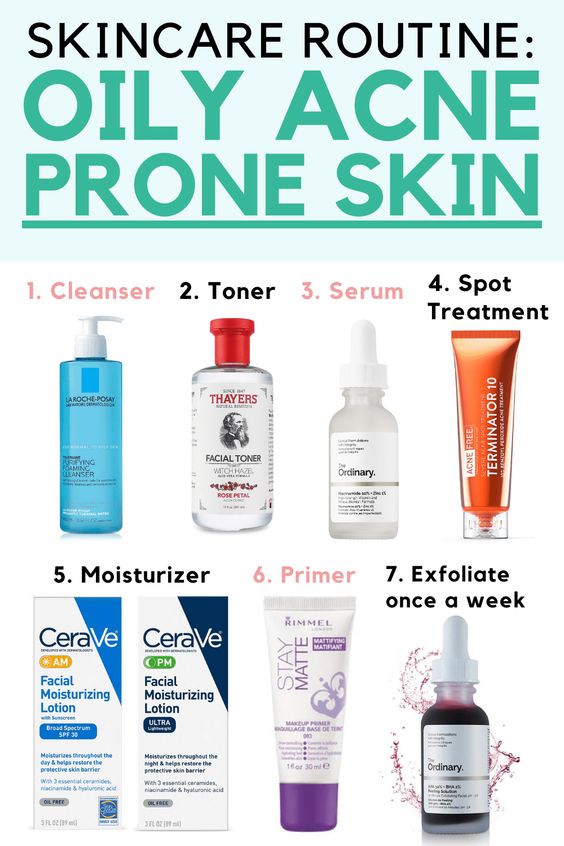
Hi everyone! I can’t believe that it’s been 5 months since I made my last blog post. I definitely did not mean to take this long of a hiatus, but I’m just glad to finally be back and creating content for y’all! During the past few months, I was focused on retaking the MCAT, working as a medical assistant, and applying for medical school! It’s been a pretty busy year for me so far, and I’m excited to share my entire journey with you soon.
In case you’re wondering where I’m at in the medical school application process, I just finished submitting all of my secondaries and am waiting for interview invitations. The entire application process has been an eye opening experience on everything I wish I did as a pre-med student in college.
Even though I can’t go back in time, I want to help you succeed and become the best medical school applicant you can be. Keep reading to learn the 9 most important things every pre-med student should do in college to better prepare for medical school applications!
Read my last post: My Entire Pre-Med Journey (High School, College, and Now!)
Here’s What Medical Schools Look For:
I’m going to be centering my tips around the 4 main components of the medical school application:
1.Academics
2. MCAT
3. Experience
4. Letters of Evaluation
ACADEMICS
1. Know medical school course pre-requisites as early as possible
One of the most important tips that I can give you and something that I wish I did as a freshman is: research the course pre-requisites of medical schools you plan on applying to. Knowing the required classes and including them in your 4 year plan will save you headaches and stress when your application cycle comes around. You don’t want to invest time and money into your application, only to realize that you can’t apply because you’re missing one class. A few things that I advise you to look out for is whether a medical school requires a year of English and also their rules regarding AP credit. Although your university may have accepted AP credit, some medical schools do not.
Keeping track of the course pre-requisites for each medical school that you’re interested in is a must! Here’s an example of the pre-requisites spreadsheet that I made for the California medical schools that I was interested in applying to. I organized the schools by region and listed all of the course pre-requisites based on their specific admissions websites. If I did not meet a requirement, I changed the font to red. If I met every requirements, I highlighted the entire row green. I also listed the amount of letters of evaluations needed for each school.

2. Take freshman year classes seriously
I know so many people who regret not taking freshman year seriously because they prioritized partying and their social life over academics. Now, I also want to preface this by saying that attending social events is not a bad thing. You definitely need to have a healthy balance of academics and a social life with all the stress of being a pre-med student! The sad reality of being pre-med is that your GPA is one of the most important factors of your application. It’s what medical schools immediately see when filtering through thousands of applications. Even though I believe that this is not the best system since we as individuals are so much more than our grades, it’s something that we just have to accept for now. That being said, take your grades and classes seriously even during freshman year because medical schools will be looking at your cumulative GPA!
SIMILAR: EVERYTHING YOU NEED TO KNOW BEFORE YOUR FRESHMAN YEAR OF COLLEGE
3. There’s no shame in receiving tutoring
There is a stigma behind getting extra academic help and tutoring, and I am here to tell you that this notion is completely false!! If anything, it takes a strong and intelligent person to recognize that they need help and to actually seek guidance. The pre-med track is known to require a lot of “weeder” courses that are extremely difficult, such as organic chemistry or physics. To make things worse, some professors are not the best at teaching and you’re left feeling all sorts of confusion. This actually happened to me the first time I took organic chemistry. My professor insisted on using a chalk and blackboard to teach, which was challenging to see in the middle of huge lecture hall, and his teaching style did not click with me. After getting a C or D on my first midterm, I decided to get free tutoring at my university and ended up with an A in the course! Even though it felt hopeless in the beginning, tutoring helped me better understand the material and gave me the confidence to eventually tutor organic chemistry after taking the course! If you are struggling in your courses, there is no shame in getting extra support!
4. Take foreign language classes
One of my biggest regrets is not taking Spanish during high school or college. As a current medical assistant in California, I have the privilege of interacting with many Spanish-speaking patients. It can be challenging for me to communicate with them at times, which is one of the reasons why I am trying to learn Spanish on my own.
Taking a foreign language class doesn’t increase your chances of getting into medical school by any means. However, it will make you a better future physician because you will be able to treat and connect with a more diverse group of people. I believe that when patients feel valued and heard, they will feel comfortable sharing their needs with their healthcare team. One of the ways that we can achieve this is by communicating with them in their familiar language.
Check out my top 5 study advice posts:
8 Tips on How to Feel Motivated to Study Again
5 Life-Changing Organization Tips for Online Classes
How To Get A 4.0 GPA This Year
20 Must-Have Apps for College Students
10 Super Helpful Tips for Taking Online Classes and Staying Motivated
LETTERS OF EVALUATION
5. Establish relationships with your professors
Most medical schools require letters of evaluations from either your university’s pre-health committee or professors/supervisors who know you well. My university does not have a pre-health committee, so I had to ask my professors and supervisors to write me a letter. From my experience, almost all medical schools want a minimum of 2 letters from science professors. Again, I highly recommend that you create a spreadsheet and list out all of the components that your target medical schools require for applicants, including letters of evaluations.
Since you will eventually have to ask your professors for a letter of evaluation, try to establish a friendly relationship with them so that they can write a genuine and strong letter for you when the time comes. I know that it seems daunting to approach your professor- trust me I’ve been there! An easy way to get to know them is by attending their office hours and asking questions not only about the class but also about their research or professional journey. Professors love to talk about their work, so give them a chance to do so! Once you get to know your professor, it will be much easier to ask them for a letter of evaluation in the future. One of these days, I’ll make a post on when and how to ask for letters of evaluations, so be on the look out for that!
MCAT
6. Plan for future MCAT studying
In the future, I’ll be making a very in-depth post about my comprehensive MCAT guide, but I’ll give a quick summary of what the MCAT is here! The MCAT is a 7 hour test that medical schools require when you apply. It is broken up into 4 different sections in this order:
- Chemistry (General and Organic) and Physics
- CARS (reading comprehension)
- Biology and Biochemistry
- Psychology and Sociology
Basically, the MCAT tests you on almost everything you’ve learned as a pre-med undergraduate. I highly recommend that you save your college course notes for future MCAT studying. As a student, it’s so easy to fall into the trap of memorization and doing the bare minimum to get a good grade in a class. While taking physics in college, I was definitely guilty of doing this. Just remember that you’ll have to eventually relearn these concepts for the MCAT, so try to get a deeper understanding of the concepts in your courses the first time.
One more piece advice that I want to add is to take classes that are covered in the MCAT, such as psychology and sociology. I did not have a chance to take these classes during high school or university and had to learn everything on my own for the test. Although I ended up with a great score in this section, having previous knowledge of these subjects would have saved me so much time during studying!
EXPERIENCE
7. Get involved EARLY during freshman year
This tip is definitely something I wish I knew before entering university. During my freshman year, I was so focused on doing well in classes that I completely ignored joining organizations and gaining professional and clinical experience. Although academics is important, medical schools are also looking for well-rounded applicants with unique experiences. Medical school applications aside, you only get to have the college experience once. Take this time to have fun, meet new people, and explore your passions!
In terms of experience, here are the main ones that medical schools look out for:
- Clinical
- Research
- Volunteer
- Leadership
- Extracurriculars
As a freshman, you might be thinking- why would anyone want to hire me with no previous experience? Here’s something you should know: people want to invest in someone that will be around for a while. That’s what makes being a freshman so appealable to research labs, clinics, and organizations! I have a lot of advice to add for each type of experience, but I think that it’ll be better to save them for a separate post. Be on the look out for that!
Read: How to Make the Perfect Resume With No Experience (Plus Free Resume Template!)
Read: Get an Undergraduate Research Position with these 4 Insanely Easy Steps
8. Know your worth
Just because we’re students does not mean that we can be taken advantage of in terms of pay and labor. While searching for jobs, you’ll see labs or clinics advertising positions as “internships” without pay and requiring you to do menial labor for long hours. Do not accept these positions because they are not worth it in the long run! Your time is valuable, so accept positions that pay you decently while also giving you the experience that you need.
I want to speak about my own experiences, but I am a bit paranoid of medical schools reading my posts since I’m still in the application cycle. Instead, I’ll give you an example of my friend’s experience! My friend applied for a student assistant position at a research lab during his second year of college. However, instead of engaging in actual research as promised during his interview, he was mostly assisting with administrative work. He didn’t leave the position for several months because he was hopeful that he would be given a research project in the future. Those several months of administrative work could have been used to gain meaningful clinical experience with patient interaction or start a research project with another team! As a pre-med student, your time is limited before applying to medical school so it’s imperative that you’re selective with the positions you are involved in. Don’t be afraid to leave if you’re not getting valuable experience!
9. Network
There’s no hiding the spirit of competition within the pre-med community. In a field where practically perfection is expected, the feelings of comparison and competition is inevitable. However, it’s really important to find a supportive group of peers that can give you advice and guide you in the right direction. Joining pre-health student organizations and being involved in campus is a great way to find your network. By connecting with other pre-meds, you can get personal advice on tackling the MCAT, hook ups for clinical/research positions, and advice on scheduling classes! Being a pre-med student is extremely difficult and stressful, but having a solid group of people to lean on for support will help make your journey easier.
Conclusion
I truly hope that this post helped and gave you a better idea of what to focus on as a pre-med student. This is the second post of my Pre-Med Series, in which I plan to dive deeper into studying for the MCAT, the medical school application process, and dealing with the pressures of being pre-med. I’m also excited to be sharing more posts about my life and style! Thank you so much for reading!
love,
blaze ann



Follow me on Instagram for daily outfit inspiration & videos!












